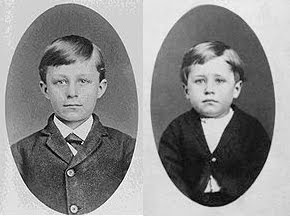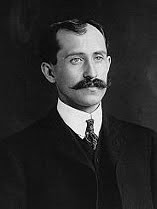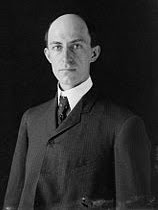
The Wright brothers, Orville (August 19, 1871 – January 30, 1948) and Wilbur (April 16, 1867 – May 30, 1912), were two Americans who are usually credited with inventing and building the world's first winning airplane and making the first controlled, powered and sustained heavier-than-air human flight, on December 17, 1903.
 In the two years afterward, the brothers developed their flying machine into the first sensible fixed-wing aircraft. Although not the first to build and fly trial aircraft, the Wright brothers were the first to invent aircraft controls that made fixed-wing powered flight possible.The brothers' primary breakthrough was their invention of three-axis control, which enabled the pilot to steer the aircraft effectively and to maintain its equilibrium.
In the two years afterward, the brothers developed their flying machine into the first sensible fixed-wing aircraft. Although not the first to build and fly trial aircraft, the Wright brothers were the first to invent aircraft controls that made fixed-wing powered flight possible.The brothers' primary breakthrough was their invention of three-axis control, which enabled the pilot to steer the aircraft effectively and to maintain its equilibrium.This method became ordinary and remains standard on fixed-wing aircraft of all kinds. From the beginning of their aeronautical work, the Wright brothers focused on unlocking the secrets of control to overcome "the flying problem", rather than developing more powerful engines as some other experimenters did.
 Their careful wind tunnel tests shaped better aeronautical data than any before, enabling them to design and build wings and propellers more effective than any before. Their U.S. patent 821,393 claims the creation of a system of aerodynamic control that manipulates a flying machine's surfaces.
Their careful wind tunnel tests shaped better aeronautical data than any before, enabling them to design and build wings and propellers more effective than any before. Their U.S. patent 821,393 claims the creation of a system of aerodynamic control that manipulates a flying machine's surfaces.They gain the mechanical skills necessary for their success by working for years in their shop with printing presses, bicycles, motors, and other machinery. Their work with bicycles in particular partial their belief that an unstable vehicle like a flying machine could be prohibited and balanced with practice.
View This Site : Fashion News, Chicago Movers
No comments:
Post a Comment